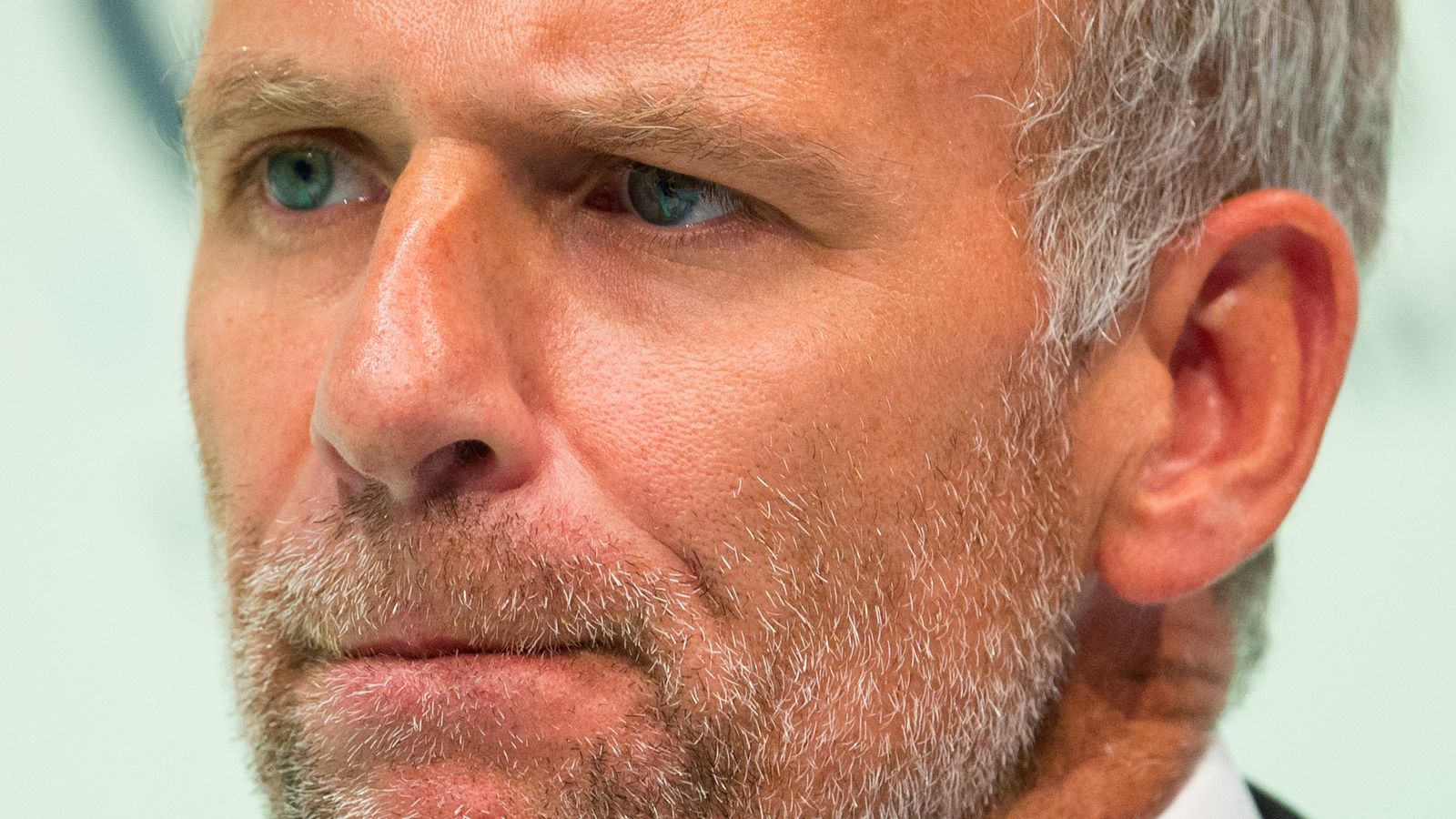A British clean energy start-up which hopes to build the world’s longest undersea cable capable of delivering nearly a tenth of the UK’s electricity is to kick off talks with prospective investors in the £16bn project.
Sky News has learnt that Xlinks, which has been founded with the ambition of establishing a cheap and reliable new energy source for Britain, is close to hiring bankers to advise on the revolutionary plan.
The company wants to construct a 3800km cable between north Africa and the UK that could transmit enough electricity to power more than seven million British homes.
Xlinks has recruited a heavyweight board to help deliver its vision, with Sir Dave Lewis, the former Tesco chief executive, installed last year as the company’s chairman.
Sir Ian Davis, the former Rolls Royce Holdings chairman, has also been recruited as a non-executive director.
The company has already secured up to £40m in development funding, but is now advancing plans to secure the billions of pounds of financing required to construct vast windfarm and solar farm facilities in Morocco, as well as UK factories that would manufacture the subsea cable required for the climate-friendly initiative.
Manufacturing sites in Hunterston, Scotland – where a nuclear power plant is being decommissioned – on Teesside and at Port Talbot in Wales have all been secured and are under development.
Chelsea bidders hit with demand for extra funds to secure £2.5bn charity windfall
Brexit import checks delayed again to spare squeezed firms a further cost hit
US economy records surprise contraction during first quarter but big rate hike still on the cards
The cable manufacturing operations will be overseen by XLCC, which will have separate funding arrangements from Xlinks.
Xlinks intends to raise a combination of debt and equity to fund one of the most sophisticated British energy projects ever conceived.
The company was founded by Simon Morrish, a former winner of the accountancy firm EY’s entrepreneur of the year award, while its top team also includes Paddy Padmanathan, who runs ACWA Power, a developer of renewable energy projects.
In an interview with Sky News’ business presenter Ian King to be broadcast on Friday, Sir Dave said it would take four years to produce the cable required for the UK-Morocco link, which would “create a completely new, fast growing manufacturing industry for the UK in the renewable energy space”.
He said it was conceivable that the first electricity could be supplied through the new cable by 2027, with it running at full capacity just three years later
Sir Dave and his colleagues at Xlinks are understood to have held extensive discussions with the government about its plans, which are drawing particular interest in Whitehall amid unprecedented attention on Britain’s energy security.
Earlier this month, the government set stretching targets for the long-term production of nuclear, offshore wind and solar power, although its energy independence plan was nevertheless criticised by some observers as “a missed opportunity” for neglecting the onshore wind sector.
“Global energy costs have been rising for some time as demand soars and factories roar back into life after COVID-19; Putin’s invasion of Ukraine pushed them still higher and, ultimately, it is the consumer who ends up paying the price,” Boris Johnson, the prime minister, said.
“This government is already stepping in to help, with over £9 billion of help for families struggling with their bills.
“But if we’re going to get prices down and keep them there for the long term, we need a flow of energy that is affordable, clean and above all secure.
“We need a power supply that’s made in Britain, for Britain – and that’s what this plan is all about.”
Xlinks believes its £16bn blueprint will be attractive to investors for a number of reasons, not least because of the scale of the clean energy it would deliver that would make a significant contribution to Britain’s transition to net zero emissions.
The company also says it will be able to deliver energy at £48-per-megawatt hour, below the government’s own forecasts and therefore generating long-term savings for consumers.
It is also significantly cheaper at that level than the nuclear energy due to be generated by a new fleet of power stations being built in the UK in the coming decades.
Xlinks is not seeking direct government funding, but is in talks with officials about settling on a predictable price that a Contract for Difference mechanism would provide.
City insiders believe the scale of the funding requirement is likely to appeal to large pension funds, sovereign wealth funds and infrastructure funds from around the world.
Sir Dave said another crucial factor would be Xlinks’ low geopolitical risk because of Britain’s centuries-old trading relationship with Morocco and the north African country’s ambitions of growing the energy sector as a share of its exports.
“The Moroccan government has recognised that exporting green [energy] is a very important part of their economic plan going forward, so they have an export strategy,” he told Ian King Live.
“The Sahara desert is probably one of the best places in the world to generate renewable energy from… so you have a very long period of generation.
“And if you’re capturing that energy and adding some battery storage, you can generate energy to cover a little bit more than 20 hours a day, which makes it a fantastic partner for the UK.”
The former Tesco chief added that the quality of modern high-voltage cables meant that energy could now be transported “over very long distances with very, very few losses”.
Sir Dave said the technology risks associated with the project were relatively small, citing examples of much longer cable links being planned elsewhere in the world.
“Any innovation requires bravery [and] leadership,” he said.
“The benefit here is that it’s proven technology with a very committed reliable partner with a cost profile…that we will never [be able to] match in the UK.”






